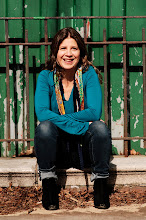My mother grew up in DeRidder, Louisiana. Her childhood was full of sweltering summers and southern food. Radios played country music. Fig trees grew in her backyard, and hens—which often wound up as dinner—clucked around there, too. (She still shudders at the memory of her grandmother wringing their necks.)
Saturdays she walked ten minutes to “downtown,” where they had TWO movie theaters, and, for the price of less than a quarter, watched a double feature—a western and a Hollywood flick—as well as cartoons. She knew just about everyone in town, and they knew her. (One of her elementary school teachers became known to her, forevermore, as “Aunt Esther.”)
She lived with her grandmother and grandfather, in a boarding house my grandmother bought with the insurance money from her first husband’s death in a lumber mill accident. My mother’s mother, Aurelia, had divorced my mother’s father when my mother was still an infant, and gone off to nursing school in New Orleans, and from there to make a life for herself. A child didn’t fit in too well with that plan, so my mother stayed behind in DeRidder.
When my mother was 16, Aurelia re-married and sent for my mother. It was a difficult move, partly because Aurelia was difficult. But my mother went off to college a couple of years later, anyway. She went to William and Mary, where she met my father, a New Yorker. They got married after graduation and eventually settled in Bethesda, Maryland, a suburb of D.C. That’s where I was born and raised.
Bethesda was rich in…what? Roads. Roads that led to more roads and strip malls laced with donut shops and grocery stores and aerobics studios. And big indoor malls featuring generic stores like The Gap and Bloomingdales and food courts. And houses that looked alike. All the houses on our block looked just like one another. Cookie cutters, my mother used to say. Every once in awhile, someone would do something different—like put a deck on. But before long, everyone else would admire the improvement and do it, too (they already knew how it was going to look). Sameness begot sameness, it seemed.
We lived there because it was close to the hospital where my father, a doctor, worked, and where my brother was later hospitalized.
There was no local food. No local music. No local culture. No one, aside from the people on the block, would know you by name. It was a place, like most suburbs, that had grown up out of convenience and necessity. People who worked in D.C. needed an affordable and relatively close place to live.
But it’s finally occurred to me that growing up in placeless place like this might be one reason I pine so much for Louisiana, which seems like a REAL place. When my parents finally sold the house in Bethesda, in fact, I could have cared less. What was there to hang onto? The houses were still the same on our block, but the people had shifted—the older ones, who didn’t need close proximity to D.C. or public school, had passed the torch (and their houses) on to a new generation of young families.
I had already moved to New York, a place rich in sense of place. But the thing about New York is that there are two kinds of people here—natives, and those of us drawn here from another part of the country for one reason or another. And after the thrill of adopting the city wears off a bit, that non-native status does eventually beg the question: What am I? In my case, the most accurate answer would be that I’m a native Bethesdan. But that thought leaves me absolutely empty. I don’t think so. I think there’s a void where my roots should be.
MineMineMine!
13 years ago




No comments:
Post a Comment